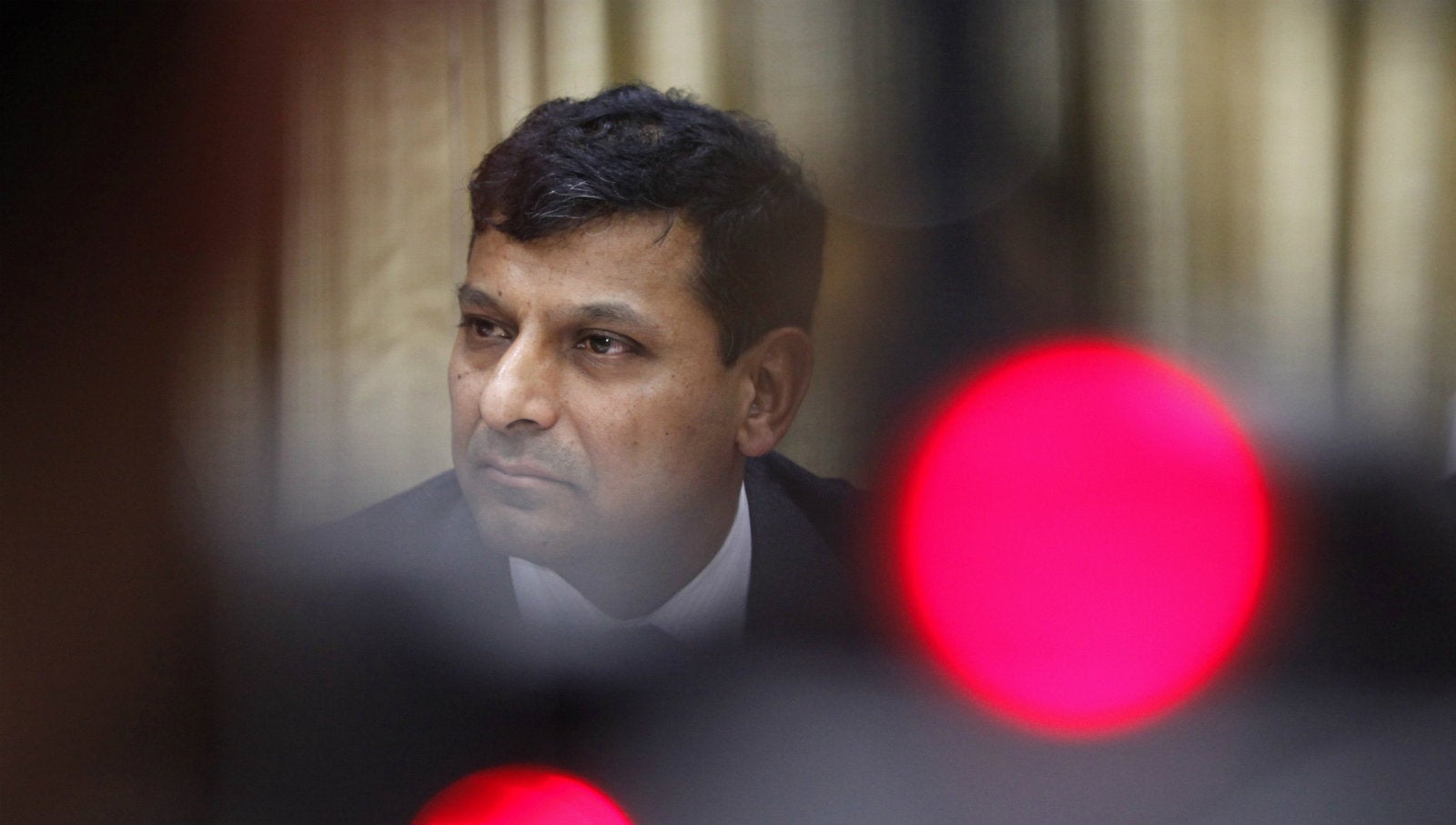Raghuram Rajan wants MNCs in India to stop whining—and smaller firms to ramp up
Reserve Bank of India (RBI) governor Raghuram Rajan has once again batted for India’s smaller businesses, even as he hit multinational giants for a sixer, asking them to stop whining about “tax excesses.”


Reserve Bank of India (RBI) governor Raghuram Rajan has once again batted for India’s smaller businesses, even as he hit multinational giants for a sixer, asking them to stop whining about “tax excesses.”
Last week, the RBI said it will introduce policies and initiatives to help startups ease their business process. Rajan believes having fewer regulations will help new companies and will encourage free enterprise.
Free enterprise refers to a condition where private companies operate amidst healthy competition, with minimal government control.
On Feb. 04, while delivering the Nani A Palkhivala Memorial Lecture in Mumbai, Rajan spoke on what will make running a small business easier in India.
“Yes, we have our weaknesses and our excesses, but our democracy is self-correcting, and even while some institutions weaken, others come to the fore. India’s is a dynamic society, ever changing, ever rejuvenating. Indeed, the possibilities for free enterprise in India today are probably better than ever before in its history,” Rajan said.
He also spoke about how multinationals are equally to be blamed for tax issues. India has a history of tax disputes with MNCs, including Vodafone and Shell—one of the issues that made foreign firms wary of operating in the country.
Here are some edited excerpts of what Rajan said in the lecture.
On free enterprises
Aam aadmi attaches no value to free enterprise if he cannot participate. Increasingly, enterprises of the future require employees to have decent education and health. Malnutrition curses an individual for life, as does poor early education. Effective delivery of social programs, so that everyone has the ability to compete, is absolutely necessary. Capitalism starts at age 21!
On startups and entrepreneurs
Rajan said that for small firms to generate more jobs, it is important for them to grow into bigger companies. He also said there has been considerable development when it comes to the development of free enterprise in the country.
India has come a long way in encouraging free enterprise. From tiny shops to large internet start-ups, the spirit of entrepreneurship is alive. Graduates increasingly want to start businesses or work for start-ups rather than go to an established consultancy or bank. Doing business is more reputable, as is getting rich. But a lot more work is needed to improve the environment so that everyone has a chance. Rather than looking for special dispensations, business has to push for improving the business environment for everyone. Glad business associations are increasingly doing this.
Rajan also praised the growing crop of entrepreneurs, like the founders of Flipkart (Sachin and Binny Bansal), who are now idols for most young entrepreneurs.
“For many youngsters now, the many Bansals are the new-age hero and that is a welcome development. We should thank the Narayana Murthys, Nilekanis and Bansals for showing the way,” he said.
“There is a need to have a large number of smaller firms which are growing to become big businesses, and one should avoid creating a tendency where the entrepreneur prefers to remain small,” Rajan added.
On MNCs and tax disputes
Rajan also slammed MNCs saying often big global corporations are also at fault when it comes to tax disputes.
“Occasionally, there is government excess, but they are not the only ones who commit excesses,” he said.
“Multinational corporations complain all the time of excessive demand about excessive taxation, but it is also true that MNCs across the world tend to find tax avoidance and sometimes tax evasion as an appropriate technique,” Rajan added. “Therefore, there is a constant fight between governments and MNCs.”